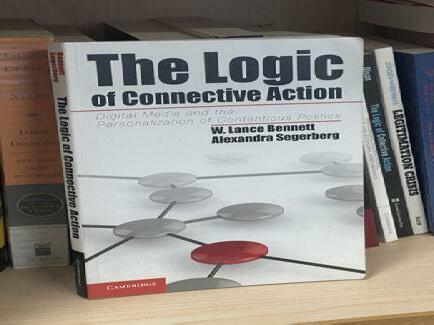
5 minute read
Citizenship amidst Social Movements - Foundation and Transformation 社會運動下的公民身分-基礎與蛻變
The Anti-Extradition Law Amendment Bill (Anti-ELAB) movement has imposed a profound impact on Hong Kong society. In the past, protests in Hong Kong were characterised by their peaceful and lawful nature, but the Anti-ELAB movement has seen an unprecedented degree of radicalisation. Some supporters of the movement even actively took part in actions that might not be strictly lawful, with examples including participating in mass rallies without a ‘Letter of No Objection’, delivering materials to frontline protesters, and vandalising stores that supported the opposite camp. Past experience tells us that when a social movement turns radical, it usually results in disputes in direction, but that did not quite happen in the Anti-ELAB movement, whose supporters remained largely in solidarity. The conception and definition of a ‘good citizen’ in the eyes of certain members of society seemed to be changing.
Dr Gary Tang. Assistant Professor of the Department of Social Science 鄧鍵一博士。 Dr Gary Tang has been closely following the evolution of the Anti-ELAB movement since its very beginning. Together with research team members from other universities, he conducted on-site questionnaire surveys at many of the protests to understand the public’s perceptions of the movement and the social values behind it. “When I conducted the first on-site survey on 9 June 2019, I thought it would be a one-off study. I never expected that the work would eventually last several months.” Subsequently, Dr Tang collaborated with a scholar from Lingnan University (currently working at Hong Kong Baptist University) to continue studying relevant issues, and commenced in 2021 a research project entitled ‘The Impact of the Anti-Extradition Law Amendment Bill Movement on Conception of Citizenship in Hong Kong’. Through telephone and focus group interviews, the project seeks to look into Hong Kong people’s notion of a good citizen. 2019年反修例運動,對香港社會影 響深遠。過去,香港的示威活動以和 平守法見稱,但是次反修例運動的激 進程度,則是前所未見。部分運動支 持者更積極參與可能不完全合法的 行為,例如參加未獲發「不反對通 知書」的集會、向前線示威者送遞 物資、破壞支持對立陣營的商店等 行動。根據過往經驗,社會運動一旦 邁向激進,一般都會導致路線分歧; 然而,這個現象在反修例運動中卻 沒有明顯出現,大部分運動支持者 依然非常團結。社會部分人士對「良 好公民」的認知與定義,似乎正在 改變。
Advertisement
In recent decades, academia’s study of citizenship has involved the dimensions of ‘duty’ and ‘engagement’. The duty-based ‘Dutiful Citizenship’ mostly emphasises adherence to the law by, for example, paying taxes on time and following rules, while the ‘Engaged Citizenship’ centres on the belief that a good citizen must actively engage in public affairs with a view to foster improvement and development in society. The supporters of the Anti-ELAB movement obviously identified more with the latter, and since they would at times challenge the boundaries of the law, Dr Tang at first surmised that they would be inclined to dismiss the concept of ‘Dutiful Citizenship’. The research findings, however, showed that it was not the case. “The supporters of the Anti-ELAB movement perceived both ‘Dutiful Citizenship’ and ‘Engaged Citizenship’ to be important. To them, the two notions were compatible. Most of them, after all, acknowledged the importance of complying with the basic framework of the law.” Such compatibility, apparently both counter-intuitive and paradoxical, seems to imply that the movement supporters’ understanding of ‘Dutiful Citizenship’ has changed. However, whether such changes are long-term shifts or shortterm aftermath of the movement would depend on the interaction of the political culture and the macro environment. At this point, the research team has yet to draw a conclusion on this question. 近數十年,學術界對公民概念的研究,涉及 「責任」和「參與」兩個維度。以前者為主 軸的「克盡己責公民」,普遍重視奉公守法, 例如按時交稅、遵守規則等;而「積極參與公 民」,則認為良好公民必須投入公共事務,以 期改善社會、推動發展。反修例運動支持者明 顯傾向認同後者,而由於他們有時會挑戰法律 界限,因此鄧博士原以為他們會傾向不認同 「克盡己責公民」概念;然而,研究結果卻反 映事實並非如此。「反修例運動支持者既重視 『積極參與』,亦贊同『克盡己責』,兩個概 念在他們身上互不牴觸。大部分運動支持者始 終認同守法這個重要基本框架。」
Post-movement Exhaustion and Pop Culture 後運動疲勞與流行文化
Compared with the results of another survey back in 2020, Dr Tang noted from the current research project that among the respondents, the number of those who refrained completely from reading or watching the news in 2021 had risen, and they identified less with ‘Engaged Citizenship’. The reduction in the choices of media outlets was certainly one reason, but Dr Tang remarked that a more important factor was the exhaustion that the supporters felt towards the changing socio-political landscape. Such exhaustion even undermined their notion of a good citizen. However, this kind of exhaustion fuelled the development of popular culture. “To fill the void left by the movement, many supporters redirected their focus in life to activities such as chasing pop stars, so as to soothe their emotions and to rebuild their normal lives.” This trend has manifested itself in recent developments in the local entertainment circle.
Dr Tang admitted that he had encountered difficulties in the research process. “Social research has to comply with relevant ethics, regardless of whether the topic is sensitive in nature.” For example, the research team would never ask interviewees to disclose matters that might involve criminal liability, nor would they mention details irrelevant to scientific theories in academic literature; nevertheless, with the current atmosphere in society, some respondents inevitably became more reserved and prudent. While the response rate of the telephone surveys did not drop, some respondents did not necessarily share their genuine views. The pandemic and the social distancing measures, moreover, prevented the research team from organising focus groups, and made it difficult to arrange student researchers to conduct phone interviews. The progress of the research was therefore hindered. Yet, what impressed Dr Tang most was not these obstacles, but the process of witnessing up close the changes in Hong Kong society alongside the citizens of the city. “Over the course of the panel study lasting several years, we have experienced Hong Kong people’s changing attitudes and sentiments alongside the transformation in the circumstances in society. It felt like we have walked with them through a period in history, and the experience has been most unforgettable.”
Looking ahead, Dr Tang and his team will explore issues including public views regarding the duty of citizens, changes in social ambience and sentiments, and interpersonal relationships through focus group interviews. “In the face of major changes, many Hong Kong people think that they should take care of and support each other to pick up their lives again.” The leaderless connective action model based on personalised content sharing on the Internet, discussed in the book The Logic of Connective Action, was one of the sources of inspiration for this research project. “We will start tidying up our papers shortly, and will include an analysis of this issue.” Dr Tang also hopes to publish a book on the research content, and to participate in follow-up studies such as the World Values Survey, so as to explore in more depth and breadth the topic of citizenship.
Overcoming Obstacles, Witnessing History 克服障礙 見證歷史
Furthering the Study of Citizenship 盼繼續探討公民身分
The discourse of the book The Logic of Connective Action is also an important element of the research project. ‘The Logic of Connective Action’一書的論 述,亦是研究項目的重要元素。











